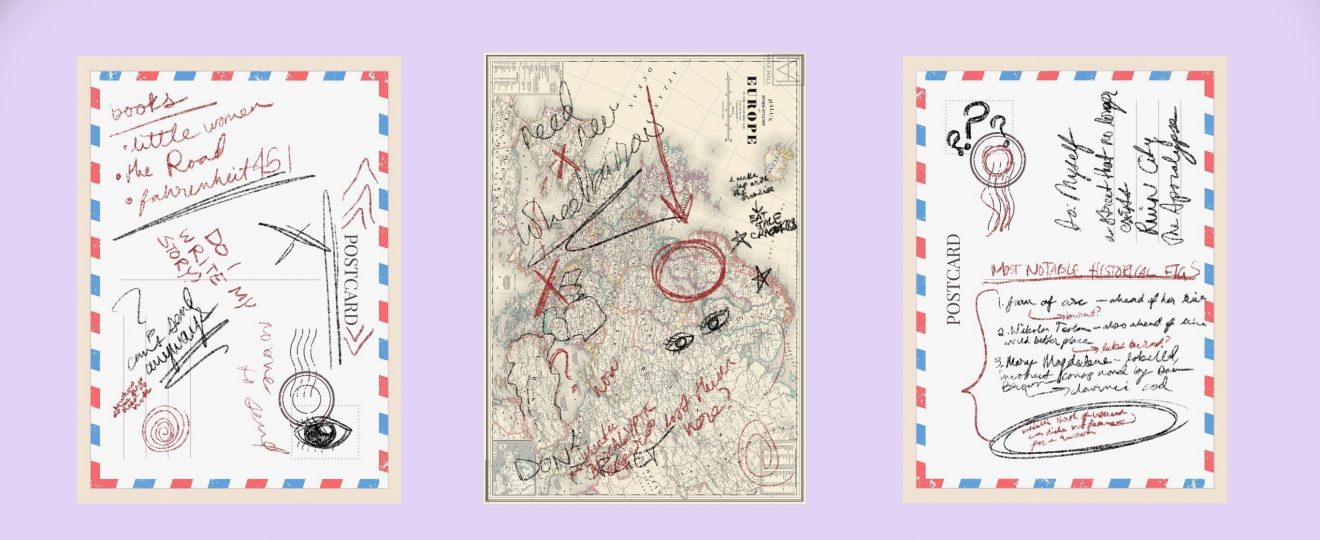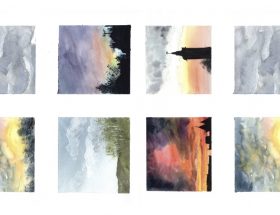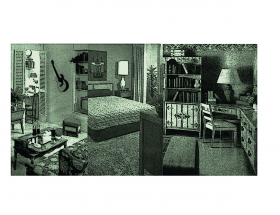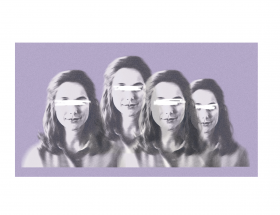Day 1
I guess I’m writing this because I have nowhere else left to turn. I always wanted to become a writer of some sort: the youngest winner of the Man Booker and Pulitzer at the age of twenty-two, before going on to win the Nobel Prize for Literature at the age of thirty-five; an award-winning investigative journalist who got to see the real side of serial killers and other deranged criminals, discovering hitherto undisclosed motives and insights that no other criminal investigator was passionate, determined, brilliant enough to. Then the world ended, or at least a version of it anyway. Not with a bang, but with a slowly fizzling release of energy, like the air being let out of a balloon, or a conservative politician’s stint at leading the UK.
Day 2
If you’re wondering what sort of life-shattering cataclysmic event turned me into the only survivor on Earth (unfortunate, I know), you won’t find out. I won’t explain how or why the world came to its end – that’s not for me to tell. And, seeing as this is a diary that will be read by my eyes only, I think I should be allowed a few minor artistic liberties/laziness. Instead, I want to focus on the pre-apocalyptic world, that world of the internet, of libraries, of museums, cinemas and theatres, a world of universities and art galleries and archives. Venues that allowed us to preserve and experience culture. You’ve probably noticed my over-usage of the pronouns ‘I’ and ‘me’ and ‘you’ (see – case in point, above), but it doesn’t matter how annoying it sounds, because no one will ever read this. I can repeat myself, make grammatical errors, and even condone the misuse of relevant clauses, because I’ll never see any of you again.
Day 3
I think it’s safe to say now that this is probably the halfway point in my attempt at dystopian autobiography; every time in the past when I made it my goal to write every day, the longest I ever lasted was six (ish) days. Well, what else can I write other than ‘I’ve been busy.’ First thing to note: The apocalypse is highly demanding in its consistent presentation of ethical dilemmas that one must face. Should I renounce my humanity, seeing as the world has already ended? Are you still human if you eat the flesh of another person? Should I murder another human being just to possess a tin of peas? * Can I look toward the future when the present barely exists anymore?
*Not that there’s anyone else around – this is one of the dilemmas usually depicted in post-apocalyptic films.
Day 4
Currently, I’m focusing on the main facets of humanity that I used to enjoy. For all the millennia of human existence that spans life on this planet, most of my selections are from the past two centuries. What does historical accuracy matter now, anyway? History as we used to know it was ethnocentric, colonialist nonsense made up by elitist white men from the 19th century in order to clap each other on the back. I’m writing a series of lists, a compilation of my favourite things from before, things like people, books, artwork, films, and foods. All of the things I want to remember. There’s something intensely satisfying about reducing the world to categories, lines, and consumable nuggets of information writ only to indulge your own whims.
For each item on the list, I will attempt to give a reason for why it is there, in its honourable spot amongst the graveyard of humanity. It strikes me that my lists are the coffins that hold the corpses of our culture, the ink and paper mortuary tools pumping old blood out of the body to preserve it, before dressing it up to make it presentable for the grieving family. An attempt to revive a dead world. Which makes me the mortician, or head coroner, I guess. Which fits. I don’t particularly like to spend time with the living, or speak, or interact with them at all. In the present state of the world, this is not too difficult a feat.
Day 5
List #1 – Most Notable Historical Figures
1. Joan of Arc – she was ahead of her time, a young woman who refused to submit to society’s expectations. Also put on trial for heresy. Ultimately led to her being burnt at the stake.
2. Nikola Tesla – also ahead of his time; the world could have been a far better place if his idealistic technologies were implemented sooner, were his labs not burned down, leaving him penniless and alone.
3. Mary Magdalene – labelled a poor prostitute who wept at Jesus’s feet in the Bible through translation errors. Also features in the conspiracy theory made popular by Dan Brown in his wildly popular, wildly false novel, The Da Vinci Code, where she apparently married Jesus, fled to France, and had children with him, spawning the Saint-Clair/Sinclair bloodline. (It’s not a coincidence that my maternal grandmother’s maiden name just happened to be the latter.)
Artworks: Personal Favourites
1. Botticelli’s ‘The Birth of Venus’ – a cliché, I know, but some paintings become famous for a reason. A beautiful glory from the Italian Renaissance that perfectly manages to transmute myth into reality. A trailblazer that has inspired countless parodies with rabbits, skeletons, or cats in the place of the love goddess. The opposite of what I’m doing now in trying to turn my own reality into diary legend.
Day 6
Today was going to be an entry about my most-loved films and foods, but after lines of scribbling, rewriting, and tearing pages out of this book, I realized I can’t do it. All the sarcastic bravado in the world can’t hide the fact that it’s too painful to think about what I was most attached to before. They didn’t just exist in a vacuum; those things were attached to people and places, to memories from before. And I can’t do it. It hurts too much to relive what I will never experience again. So, I think this might be my last entry for a while. Good morning, good evening, and good night.
Day 152
I’m going to end this with a brief insight into my life, as it is now, just to make it more real. Morning: I wake up with the sunrise, brush my teeth, and eat some stale crackers. The authentic apocalyptic experience. Then, stare at the grimy lenses of my glasses and wonder if there’s any point in cleaning them. If you don’t see anyone, and there isn’t anyone to see you, and there’s no seeing at all really, anymore, is there any point in cleaning the things that give you vision?
Afternoon: Set out with my wheelbarrow to search the buildings nearby for books that I haven’t read. Kind of useless really, seeing as I always revert to my favourites. Little Women, The Road, Fahrenheit 451. The latter two can now appropriately be categorised as ‘realist fiction.’ Despite the futility, the search grants me an excuse to get outside and walk listlessly, searching for an irretrievable aspect of human existence. Or so I tell myse
Evening: on my way back, stop and bathe in any available body of water. Which is mostly useless, seeing as filth can’t clean filth, but my therapist from before told me that ‘routines are mentally stabilising.’ I’m inclined to believe her.
Night: I always reach the library just as it’s getting dark outside. It’s probably for the best, seeing as that’s when the foxes and feral dogs are loose. I usually reach to switch on a torch first, purely out of habit, but then remember that batteries are a finite resource, and light a candle instead. Not the greatest idea when you’re in an enclosed space with hundreds of books, but who cares? I write for a bit, and then I read, to bring myself to exhaustion so I don’t cry myself to sleep, before settling down in my nest of an empty bookcase. How does this work, you may ask? To be completely honest, I don’t really know myself, and I’d rather leave the soul-searching questions behind in the pre-apocalyptic world, when therapy was available. I just don’t think I have same energy to write that I used to.
I wrote so that other people could read my stories, so that they could maybe understand what was in my head. I mean, I wanted to understand it as well, try and organize all the firing neurons and firework thoughts so that I could experience a momentary escape from them. The dream was that they might be good enough to publish in the future to critical acclaim, or if that didn’t happen, at least able to provide comfort to some lonely soul who related to what I was writing. A bit pointless now, when I have no future, and am living in some sick, messed-up version of one. I don’t even know how long I’ll survive, but I don’t want to write about that right now, because, truth be told, I used to think about my own death every day before. Not how it would happen, or when but just the fact that one day I would die, and my consciousness or soul or whatever I have, would simply cease to exist, and what I have come to know as myself would just disappear with it. It has to happen once in my lifetime, so is it better if it’s earlier or later?
And I think that I’ll leave my story there and say Adieu, because I don’t think I’ll be writing much anymore. I’m exhausted.





Great writing!